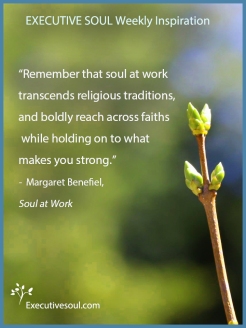In 1744, the leaders of the Maryland and Virginia colonies signed a treaty with the Native Americans of the area. These colonial leaders then invited the Native Americans to send their boys to the College of William and Mary. The tribal elders declined that offer, saying:
We know that you highly esteem the kind of learning taught in those Colleges, and that the Maintenance of our young Men, while with you, would be very expensive to you. We are convinced that you mean to do us Good by your Proposal; and we thank you heartily. But you who are wise must know that different Nations have different Conceptions of things and you will therefore not take it amiss if our ideas of this kind of Education happen not to be the same as yours. We have had some Experience of it. Several of our young People were formerly brought up at the Colleges of the Northern Provinces: they were instructed in all your Sciences; but, when they came back to us, they were bad Runners, ignorant of every means of living in the woods. . . neither fit for Hunters, Warriors, nor Counsellors, they were totally good for nothing.
We are, however, not the less oblig’d by your kind offer, tho’ we decline accepting it; and, to show our grateful Sense of it, if the Gentlemen of Virginia will send us a Dozen of their Sons, we will take Care of their Education, instruct them in all we know, and make Men of them (from Letters to a Nation, edited by Andrew Carroll, with thanks to Palmer and Zajonc for quoting it in The Heart of Higher Education).”
This clash of cultures raises many questions: What is education? Who decides what is a good education? What is the purpose of education? What does soulful leadership look like in education?
Like the gentlemen of Maryland and Virginia, we live and move and exist in a set of assumptions about the superiority of the dominant culture’s kind of education. For centuries, the dominant culture in the West has fostered a “neck up” model of education. Many alternative models of education have sprung up over the years, one of them being contemplative education.
Contemplative educators ask: How do we educate the whole person? How can head and heart be integrated? How can we explore meaning and purpose in education?
From introducing a simple nonsectarian breathing meditation practice or inviting reflective reading or compassionate presence, to using advanced techniques of meditation in teaching comparative mysticism to graduate students, the possibilities for contemplative practices relevant to course content are endless.
Empirical studies validate these practices, demonstrating that learning is enhanced by the integration of appropriate contemplative practices in the classroom. For example, the Association for Contemplative Mind in Higher Education (http://www.contemplativemind.org/programs/acmhe) provides resources on its website to help faculty choose contemplative practices to introduce to their students and to undergird the use of these practices with studies demonstrating their effectiveness.
Arthur Zajonc, a physicist and contemplative educator, believes that contemplative education rests on an “epistemology of love.” He enumerates the seven aspects of this epistemology: 1) respect, 2) gentleness, 3) intimacy, 4) vulnerability, 5) participation, 6) transformation, and 7) imaginative insight. He argues that, while focusing on love is counterintuitive to the dominant epistemology, such an epistemology results in outstanding scholarship and teaching. He cites Einstein, Goethe, and biologist Barbara McClintock as examples of those who practiced an epistemology of love.
Contemplative methods of education deserve to be explored and developed at all levels of education. Like the gentlemen of Maryland and Virginia in the eighteenth century, we need to move beyond our myopic view of education. The dominant culture in education is not the only way. In the twenty-first century, it’s time to explore more holistic and effective approaches to education.
(This blog is a further development of an excerpt from The Soul of Higher Education, co-edited by Margaret Benefiel and Bo Karen Lee, Information Age Publishing, 2019. Used with permission of publisher.)
















